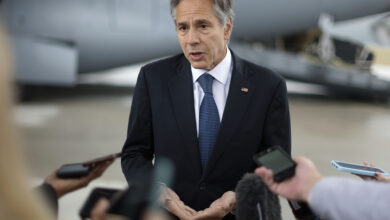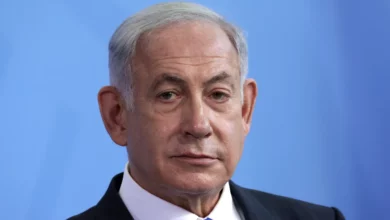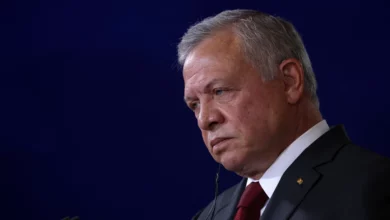
President Hassan Rouhani said Wednesday the world needs Iran to help stabilise the troubled Middle East, in remarks pointing to the wider ramifications of a deal over Tehran's disputed nuclear programme.
In a live televised speech to mark the anniversary of 1979's Islamic revolution, Rouhani implicitly linked ongoing nuclear talks with world powers to resolving bloody conflicts in Iraq and Syria.
"If there is going to be peace and stability in the region, and terrorism is to be uprooted, there is no other way than with the presence of the Islamic republic of Iran," Rouhani said.
Huge crowds assembled at Azadi (Freedom) Square in Tehran to hear Rouhani speak and commemorate the tumultuous ouster of Shah Mohammad Reza Pahlavi 36 years ago.
The fall of the Shah was followed months later by the storming of the US embassy in Tehran by Islamist students, culminating in American diplomats being held prisoner.
The 444-day hostage crisis led to the severing of US-Iranian diplomatic relations and ushered in deep distrust between the two countries which persists to this day.
This year's anniversary is the second to coincide with intense diplomatic efforts aimed at ending a 12-year standoff over Tehran's nuclear programme.
Referring to the ongoing fight against extremists in Iraq and Syria, as well as political problems and instability in Yemen and Lebanon, Rouhani said Iran was playing a leading role in the Middle East.
"You've seen in Iraq, Syria, Lebanon and Yemen that the power that could help those nations to counter terrorist groups was the Islamic republic of Iran," he said.
Rouhani then raised the issue of nuclear talks and lifting sanctions imposed on Tehran for pursuing its atomic programme.
"What we are offering is to reach a win-win agreement, in which Iran will show transparency in its peaceful nuclear activities," he said.
"And the other side must end its wrong, inhumane and illegal sanctions. This is to the interest of both sides. They too need this."
An interim agreement in November 2013 saw Iran agree to curb some nuclear activities in exchange for limited sanctions relief but two deadlines for a comprehensive final deal have been missed.
Western nations have long suspected Iran of covertly pursuing nuclear weapons, allegations denied by Tehran, which insists its activities are for civilian energy development only.
The interim deal and subsequent talks have been seen as a victory for Rouhani's foreign policy, after eight years of stalled negotiations and escalating sanctions under his hardline predecessor Mahmoud Ahmadinejad.
Rouhani has the support of supreme leader Ayatollah Ali Khamenei, but hardliners in Tehran regularly argue Iran has already conceded too much by accepting limits on the nuclear programme.




